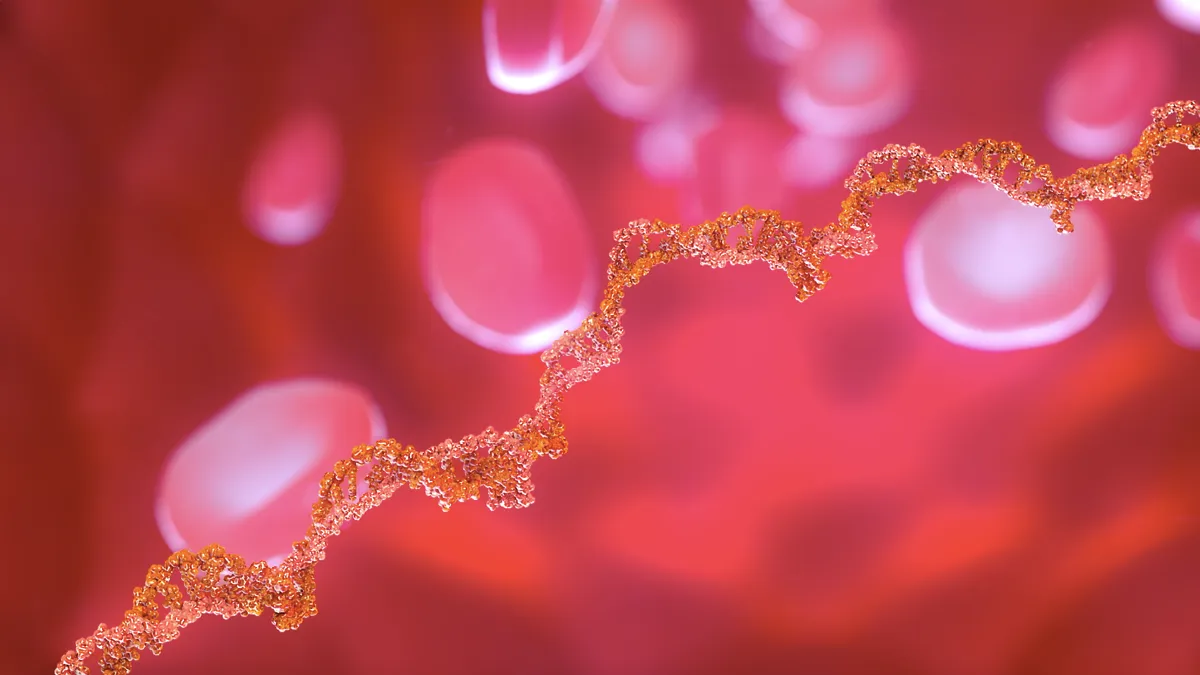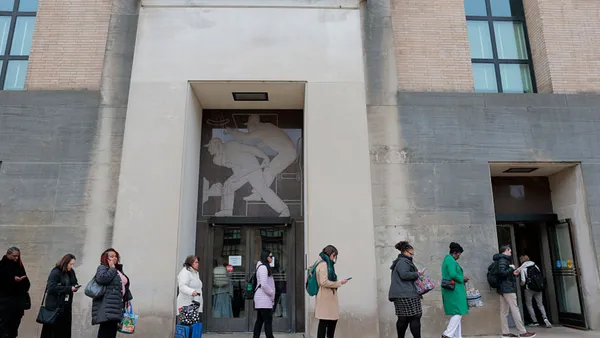Benjamin Moutier is a problem solver. It’s a business mindset that led him to AstraZeneca 12 years ago, where he saw an opportunity to make a positive, lasting impact for patients, including those with cancer. Recently, Moutier was named vice president, global franchise head of haematology, an area that he believes holds some of the most promise to solve some of healthcare’s most pressing problems today.
“Haematology is an innovative space, with many recent therapeutic innovations like cell therapy, bispecific antibodies, and antibody drug conjugates (ADCs) being developed early in the field,” says Moutier. “Unfortunately, there are still significant unmet medical needs. The five-year survival rate in many important diseases, such as late-stage diffuse large B-cell lymphoma or multiple myeloma, is still below 60%.”1,2
Currently, an estimated 3.6 million people worldwide live with blood cancers,3 such as leukaemias, lymphomas and myelomas, and new therapies are needed. Haematology, says Moutier, is “the cradle for innovation” in oncology. It’s an area filled with “firsts” that include precision medicine, stem cell transplants, monoclonal antibodies, antibody drug conjugates, CAR-T cell therapy, bispecific antibody therapy and epigenetic therapy. But there’s still a great deal of work to be done, and Moutier is eager to lead his team at AstraZeneca in solving these important problems.
“AstraZeneca is committed to haematology for the long run,” he says. “With this type of work, there are a lot of risks and challenges, but we have a great team, great pipeline, and a great portfolio. I am confident we have a strong opportunity to lead the pack in haematology.
A personal connection

For Moutier, the challenge is also personal: when he was just 15, he watched his father die from cancer. “It was a difficult and emotional experience for me,” he says. Initially, he veered away from pursuing a career in pharmaceuticals and oncology, opting to study math and economics instead. As time passed, however, he understood that his own experience could help others.
“My father’s battle with cancer made me understand the profound impact that innovative treatments and therapies can have on patients and their families,” he says.
Moutier began working at AstraZeneca in 2011, and has held roles in marketing and sales, country management and global commercial leadership, which led him to develop a comprehensive understanding of the pharmaceutical business. Before his current position, he was vice president, head of global commercial, immuno-oncology. “I’ve gained valuable insights into clinical development, investments, developing and executing strategies, managing teams, and forging partnerships, which are all crucial for driving growth in this therapeutic area,” he says.
Dr. Gemma Satterthwaite, AstraZeneca’s global product leader, oncology business unit, says that Moutier’s commercial experience and analytical mind, in particular, make him good at his job. She says she expects to see him play an important role as a coach and mentor moving forward.
In his new role in haematology, he says he will focus on leading transformational changes that will pave the way to developing therapies and improving outcomes across a broad range of haematological diseases.
In addition, he says his colleagues are developing several promising clinical assets and that the company also has a diverse pre-clinical pipeline across an array of platforms. “This dynamic environment offers a unique opportunity to shape the future of our haematology franchise and make a significant impact for patients,” he says.
Game, set, match
Long before Moutier realized he had a knack for problem solving, he had talent in another area: tennis. Growing up in a small city in Normandy, France, he was absolutely convinced he would become a professional tennis player.
“Life had other plans for me, and instead of gracing the courts of Wimbledon, I ended up in the world of pharma,” he says. “But I'm not complaining.”
Tennis remains a constant in his life, and he recently found his way back to the competitive scene after moving to London from Paris with his family in 2020. He says the game keeps him on his toes when he’s not working or spending time with his young sons, ages 2, 5 and 9. Plus, it serves as an important outlet for what can be a stressful job, as he and his team work to make inroads in solving some of the world’s biggest health problems.
“Having the opportunity to make a significant impact on patient outcomes, and to potentially contribute to finding a cure for cancer is both a unique opportunity and a powerful motivator for me,” he says. “It is this purpose that drives me in my career and fuels my passion for making a difference in the lives of patients and their families.”
Z4-55013 Date of Preparation 5/23.
Sources:
- Blood. Outcomes in refractory diffuse large B-cell lymphoma: results from the international SCHOLAR-1 study. https://www.ncbi.nlm.nih.gov/pmc/articles/PMC5649550/. Accessed May 2023.
- American Cancer Society. Survival Rates for Multiple Myeloma. https://www.cancer.org/cancer/types/multiple-myeloma/detection-diagnosis-staging/survival-rates.html. Accessed May 2023.
- World Health Organization. Worldwide Cancer Fact Sheet 2020 (Incidence, Mortality and Prevalence by cancer site). https://gco.iarc.fr/today/data/factsheets/populations/900-world-fact-sheets.pdf. Accessed May 2023.








